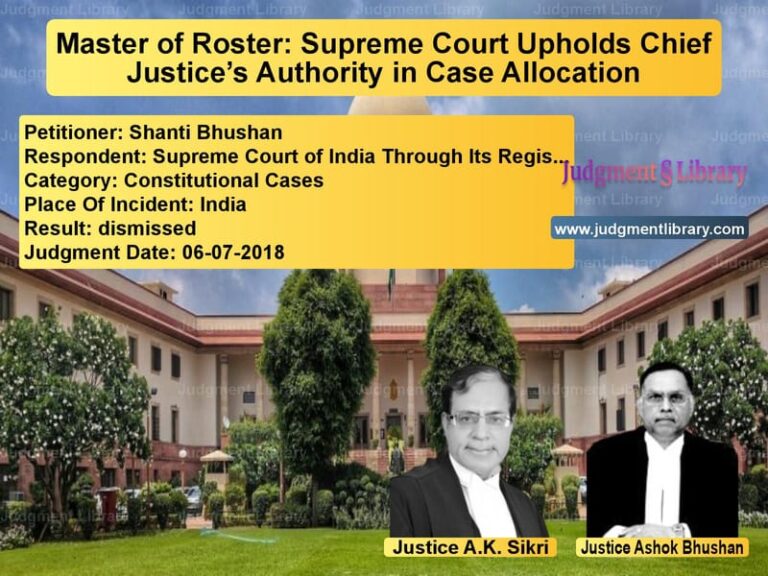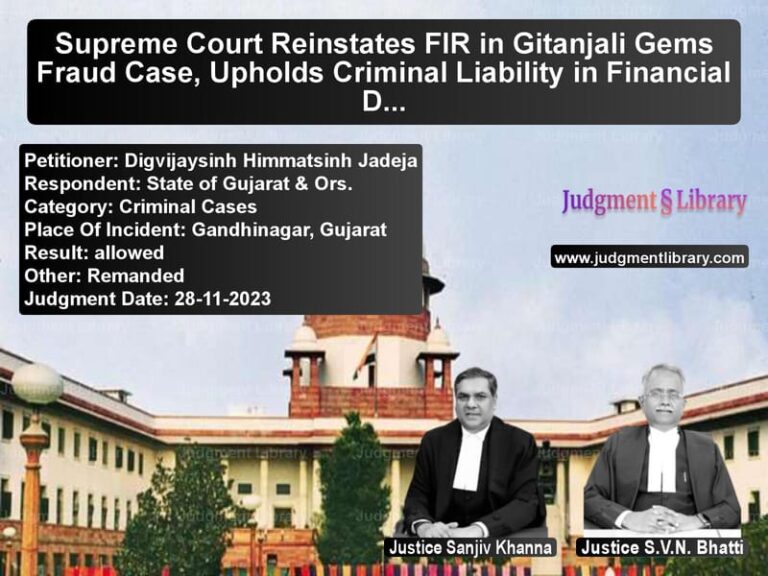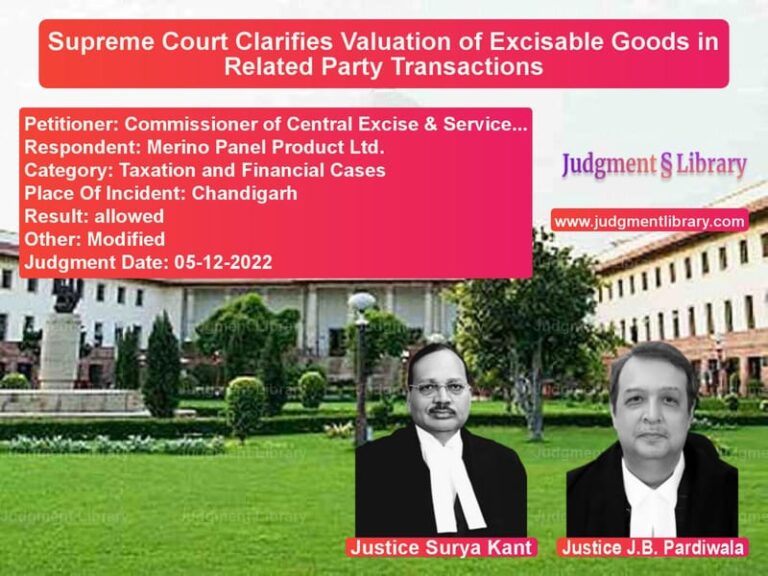Supreme Court Defers Decision on Key Corruption Act Provisions, Tags Case to Larger Bench
The Supreme Court of India recently addressed a complex legal matter involving the interpretation of key provisions of the Prevention of Corruption Act (PC Act) in the case of B.S. Yeddyurappa versus A. Alam Pasha & Ors. The case, which involved multiple special leave petitions, raised significant questions about the applicability of Sections 17A and 19 of the PC Act, particularly regarding the requirement of prior approval for investigations against public servants.
The dispute originated from a complaint filed on 26.04.2012 against the petitioner and others, alleging offenses under Section 13(1)(c) read with Section 13(2) of the PC Act. At the time of the alleged offenses, the petitioner was serving as the Chief Minister of Karnataka. The case took several twists and turns through various judicial forums, ultimately reaching the Supreme Court.
The Court framed seven crucial questions for consideration, including:
“I. What are the relevant considerations as contemplated by Section 17A of the Prevention of Corruption Act, 1988 which the appropriate authority or government is expected to look into before the grant of approval for initiation of any enquiry, inquiry, or investigation by the police?”
“II. Whether the considerations which weigh with the appropriate authority or government while granting approval under Section 17A of the PC Act are fundamentally so different from the one that a Magistrate is ordinarily expected to apply while passing an order under Section 156(3) of the Code of Criminal Procedure, 1973 so as to preclude the Magistrate from fulfilling the object underlying Section 17A of the PC Act?”
The petitioner’s arguments centered around several key points. It was contended that “the second complaint is not maintainable; (b) sanction is required in view of amended Section 19 and newly inserted Section 17-A of the PC Act; (c) Aiyappa’s judgment is a good law unless set aside by a larger Bench.” The petitioner’s counsel further argued that “the allegations in the complaint if are taken at their face value would relate to a decision taken by a public servant in discharge of his official functions or duties and therefore, the bar on investigation as put by section 17 A of the PC Act would apply.”
On the other side, the respondents countered these arguments by asserting that “Aiyappa’s decision is in the teeth of a three-Judge bench decision of this Court in R.R. Chari vs. State of Uttar Pradesh” and maintained that “while exercising power under section 156 (3) of CrPC, the concerned Magistrate does not take cognizance of the offences, therefore no sanction is required at that stage.”
The Court noted the complexity of the issues involved and the existence of conflicting judicial opinions. Particularly significant was the observation that “as for maintaining judicial discipline a coordinate bench of this Court has refrained from proceeding further in deciding the underlying issue, which is under reference to a larger bench.” This referred to the pending reference in “Manju Surana vs. Sunil Arora & Ors.” regarding whether the bar of Section 19 of the PC Act would apply to the exercise of power under Section 156(3) of CrPC.
In its concluding remarks, the Court stated: “We are of the considered view that scanning of the provisions under Sections 156(3), 173(2), 190, 200, 202, 203 and 204 of the CrPC would, prima facie, reveal that while directing for an investigation and forwarding the complaint therefor, the Magistrate is not actually taking cognizance. However, since the said question is referred as per the above judgment, judicial discipline and propriety dissuade us from proceeding further.”
The Court ultimately decided to tag these petitions with the referred matter “Manju Surana vs. Sunil Arora & Ors.” and directed the registry to place the matters before the Hon’ble Chief Justice of India for appropriate orders. This deferral highlights the significance of the legal questions involved and the need for a definitive ruling from a larger bench on these crucial aspects of anti-corruption law and criminal procedure.
Petitioner Name: B.S. Yeddyurappa.Respondent Name: A. Alam Pasha & Ors..Judgment By: Justice J.B. Pardiwala, Justice Manoj Misra.Place Of Incident: Karnataka.Judgment Date: 20-04-2025.Result: remanded.
Don’t miss out on the full details! Download the complete judgment in PDF format below and gain valuable insights instantly!
Download Judgment: b.s.-yeddyurappa-vs-a.-alam-pasha-&-ors.-supreme-court-of-india-judgment-dated-20-04-2025.pdf
Directly Download Judgment: Directly download this Judgment
See all petitions in Fraud and Forgery
See all petitions in Bail and Anticipatory Bail
See all petitions in Public Sector Employees
See all petitions in Legal Malpractice
See all petitions in Money Laundering Cases
See all petitions in Judgment by J.B. Pardiwala
See all petitions in Judgment by Manoj Misra
See all petitions in Remanded
See all petitions in supreme court of India judgments April 2025
See all petitions in 2025 judgments
See all posts in Criminal Cases Category
See all allowed petitions in Criminal Cases Category
See all Dismissed petitions in Criminal Cases Category
See all partially allowed petitions in Criminal Cases Category







